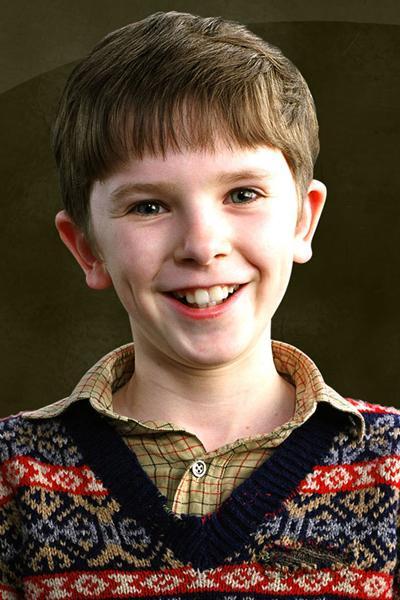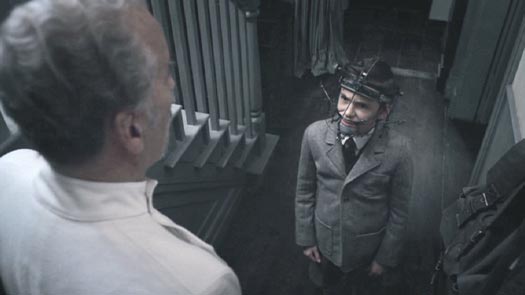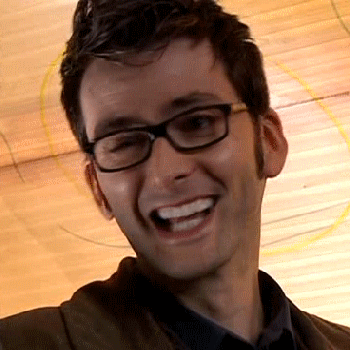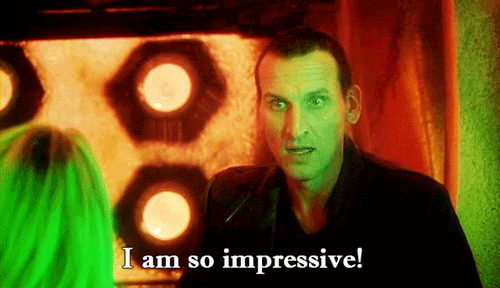The first in the two-parter is about, as the title suggests, Charlie and the Chocolate factory: a film based on the book by Roald Dahl and a remake of the much beloved 1971 film directed by Mel Stuart and starring Gene Wilder. That version (the 1971 one, which is, for the record, actually called "Willy Wonka and the Chocolate Factory") is what most people remember from their childhoods. It is still generally what people think of when anyone mentions the tale, one might even say more so that the book. It has some great songs, really iconic scenes and memorable characters. But is it really as great as people make it out to be? Or is that the nostalgia goggles and "first is better" mentality? How does Burton's adaptation hold up? Why do people have such hatred for it? Let's take a look, shall we?
Now, I'm going to come straight out and say it: I never liked the original film growing up. I'm not sure if that was down to the fact that I read the book first, or that I was a bit older when I first saw it. I never saw what the big fuss was about. To prove my point, I'm going to look at the different factions of the two films (and the book on which they are both based) and critique.
1. Before the factory
Here I'm going to examine the openings of the two films and compare a little with the book. The opening of the original film was honestly a large factor in why I didn't like it growing up. One word: BORING. Yes, I understand they're setting the scene but, man, does it drag! The first FORTY TWO minutes of this thing is the lead up to actually entering the factory (y'know that part we actually care about). It's only 99 minutes long in total! As a writer I understand the benefit of making your audience wait for something, I really do, but nearly half the running time is just a weensy bit excessive, don't you think? In that time, there are three songs ("The Candyman", "Cheer up Charlie" and "I've Got a Golden Ticket" all of which I feel are slightly pointless. I'll get back to that) but the rest of it is mostly talking.
Don't get me wrong, there are some good scenes in the opening. I really like the interaction we see between Veruca Salt and her father in the nut factory , which sets up the character well, I just wish the scenes featuring the other kids were as memorable. And some of the clips of the worldwide hysteria over the competition are priceless, especially the one featuring the man who's built a machine to find the winning ticket. That was some great comedy and to good use. However, any momentum and intrigue built up by the good scenes is buried beneath layers of Charlie going to school, focus on the wrong vendor of sweet things and the whole hullabaloo with Slugworth (which I'll get back to later). To contrast, In Burton's version we already have a good idea of Willy Wonka himself through showing not telling (which is what they do in the original FYI. Visual medium, people.) while keeping him shrouded in the necessary mystery. The use of eye-catching colours and incredible sets make sure we remember the other contestants. While it could be said that in this version the other contestants are much more caricature-like in comparison to the realer examples in the original. However, I argue that making them more exaggerated is more in keeping with the ideas of Dahl himself, who made them hyperbolic examples of the traits he wanted to emphasize as bad (this applies to the parents too). That's my view on it thought. I also really like that the Burton version shows more cutaways of the worldwide rush for the Wonka bars where the original mostly shows America (with that one Peruvian dude).
The Characters:
The main differences character-wise between the two movies are Wonka and Charlie's characters but I'll briefly looks at the others too. As I've said before, I thought that the hyperbole used with the characters in Burton's version was more true to the book. As far as charlie's family is concerned (and I'm just being honest here) they're both pretty dull. C'mon, you know it's true. However, the character injections given to Grandpa George and Grandma Josephine in Burton's was welcome and boosts that version up a notch. Grandpa Joe is, as a character, kinda meh. He's moral support, the magical old mentor figure who encourages the protagonist to follow his dreams, yadda yadda yadda. I believed David Kelly (from Burton's version) more in terms of the feeble, bedridden for years grandfather, where Jack Albertson (from the original) always seemed a little too able bodied. They both have charisma, I'll grand them both that, but I felt that Charlie from the original and Albertson had better on-screen chemistry. Also, gotta love that one supremely dated scene where Charlie berates Joe for buying chocolate when "That money was for tobacco!".
Now to the mains. Firstly, Ima throw you a curve-ball and say that I haaaaate the Charlie in Burton's movie. Holy shit, is he boring! Out of all the things this movie does right, it screws up with the MAIN CHARACTER. I'm not sure if it was the script, or the direction, or the performance by Freddie Highmore but they take this normal, fun loving, intelligent kid from the book and warp him into mini-Jesus for some reason! Why? The protagonist is the character we're supposed to identify with, making him perfect defeats the purpose entirely. The original Charlie, on the other hand, has normal human emotions. For example, there's one scene where he's in school and the teacher is asking how many Wonka bars the kids had bought so he can use them as examples for maths class. Charlie, having only bought one bar, is laughed and condescended to by his classmates and teacher, and he understandably is upset. This is valuable character development, people! We sympathise with and understand him better for this. Now, I know that the character is meant to be free of the fatal flaws that the other ticket finders possess (such as greed, pride, sloth, wrath, etc... why to they sound familiar?) but he's still meant to be human. Yes, he's caring, yes, he's selfless but he's still a child! Dahl understood that and so did the makers of the original film (Dahl actually wrote the original script for the movie but an man named David Seltzer rewrote much of it before filming. Dahl hated the end product.) The scene that almost undoes my liking for the original's Charlie is the added "Fizzy Lifting Drink scene". For the record, Dahl despised this scene too. It completely goes against the message that the story is trying to convey about the value of humility and being grateful for what you have.
Now to the man himself: Willy Wonka. Another fun fact here, Dahl originally pushed for Spike Milligan to play this character. You know, the guy who wrote "On the Ning Nang Nong"? He was one of the founders of The Goon Show, one of the inspirations for Monty Python's Flying Circus? Okay, follow this link and TELL me this man would not make a great Wonka. I dare you. Now that's out of the way, I honestly feel that Depp's Wonka is fifty times better than Wilder's. It's odd though, you'd think that Wilder would be phenomenal in this role. He's a fantastic character actor and can be incredibly funny. Yeah, so is Depp, but if you'd told me beforehand that Edward Scissor-hands would do this role justice I'd probably laugh you out of the building. Yet... Depp does it better, in my opinion. I'm not sure if it's the direction or the writing (I think it was the writing) but Wilder's Wonka comes off as far too... mild.
In the book, Willy Wonka is a little like Sherlock Holmes: He knows exactly what's what and revels in being cryptic and often downright rude. He makes next to no sense most of the time but in a fun-loving way. That's important. Y'see, Wonka is effectively a manchild. A kid in a candy store if you will (see what I did there?). He's living the life we all thought we'd be living (when we were about five and thought buying a chocolate factory would be within our means once we grew up). He loves his work intensely, more than he loves people, quite possibly more than he loves himself. Burton's Wonka capture's this. He's weird, a little unnerving at times but he always seems like he's genuinely having fun. Wilder's Wonka is too restrained for that. He's too softly spoken, too matter of fact. When he does something kooky it doesn't seem like it's because he wants to or because he wants to see how people will react, it comes off as someone with a genuine problem. And for all his craziness, Wonka as a character is not clinically insane, just a bit odd.
The Songs:
Finally, the songs. No surprises here: I prefer Burtons' songs personally (composed by Danny Elfman, credit where credit is due). Both films have a great deal of songs in them. Technically speaking, the original has nine songs (ten if you count the creepy tunnel one), many of which are iconic and fondly remembered to this day. "The Candy Man", "Pure Imagination" and who could forget "The Oompa-Loompa Song(s)". However, the original movie has plenty of dudds. Does anyone remember "Cheer Up Charlie"? That one song near the start that lasts about a year and furthers nothing? Or "Give it to Me Now", Veruca's arbitrary "I'm a spoiled brat"song? Now, in comparison, Burton's version has only five lyrical songs (with a really awesome opening theme though, amiright?). None are as fondly remembered but neither is the rest of the movie. Take off your nostalgia goggles and hear me out.
When I was growing up, having read the book, I was always supremely disappointed with the original's chorus of Oompa-Loompa. Those of you familiar with the book will know that therein, after each child's misfortune, was a cautionary and funny, usually anecdotal song from the Oompa-Loompas, to highlight each child's individual hamartia (fatal flaw). They were clever and when I was reading, I'd always look forward to the next one. What did the original film give us? This thudding, unimaginative tune with little variation from child to child and boring lyrics to suit rhyme. Bad show. Also, if you take into account the fact that these songs are all effectively the same, the original's song count drops to six. In Burton's film, each child's send off was unique and suited that particular child. They took inspiration from Dahl's original poems and each song came from a different decade, which I thought was clever. While we're talking about the Oompa-Loompas, I really don't like the design of either. I always pictured them like pixies or sprites when reading the book (though I know the illustrations are more resembling little tribes-people). I guess having them all look the same in Burton's version is a little weird but the orange skin and green hair is no less stupid. Neither wins out in my book but the improved songs in Burton's give them the edge.
Other stuff:
I couldn't come up with a connecting thread for these last issues. Oh well! Firstly, SLUGWORTH. Totally redundant. This story was perfectly fine without this completely pointless subplot you added, movie! The only purpose it serves is to give Wonka a reason to blow up in everyone's face at the end of the movie, something out of character in the first place! Just... why?!? Then there's that tunnel scene. I don't even... I get that they're establishing mood, the factory's slightly more sinister than it seems yadda yadda yadda, but that idea is there anyway as soon as children start disappearing. No one was arguing that it seemed too innocent right after a boy's almost died! It's also worth mentioning that the original factory seemed, like Wonka, a little tame. However, that may be at least partly down to the times, CGI wasn't an option then. I let it slide. I've already voiced my distaste for the fizzy lifting drink scene. Another "Why would you think this was necessary?!" moment. In Burton's version, of course, we have the added Daddy issues. Mr. Burton, we get it. Someone didn't get the attention or acceptance they felt they needed from their Papa. We've all been there. Do you need to write it into every one of your movies? It's bad enough with Spielberg, dude. you're better than this.
That said, I actually don't mind the added back story to Wonka in this version. It helps us understand him as a character, we see his growth and his struggles and that makes him more sympathetic, despite his regular jerkishness. However, it could easily be argued that this defeats the point of Wonka being shrouded in mystery from the beginning. It could be said that you're not supposed to know this much about Wonka. He's a kook, a call to adventure, not the adventurer himself. Eh, I thought it worked.
Finally, a few words on a great injustice: Why has no-one considered making a Great Glass Elevator film?
 |
| Ladies and gentlemen, we have ourselves a showdown! |
1. Before the factory
Here I'm going to examine the openings of the two films and compare a little with the book. The opening of the original film was honestly a large factor in why I didn't like it growing up. One word: BORING. Yes, I understand they're setting the scene but, man, does it drag! The first FORTY TWO minutes of this thing is the lead up to actually entering the factory (y'know that part we actually care about). It's only 99 minutes long in total! As a writer I understand the benefit of making your audience wait for something, I really do, but nearly half the running time is just a weensy bit excessive, don't you think? In that time, there are three songs ("The Candyman", "Cheer up Charlie" and "I've Got a Golden Ticket" all of which I feel are slightly pointless. I'll get back to that) but the rest of it is mostly talking.
 |
| "I'm a colossal waste of time. Pay up, moviegoers." |
The Characters:
The main differences character-wise between the two movies are Wonka and Charlie's characters but I'll briefly looks at the others too. As I've said before, I thought that the hyperbole used with the characters in Burton's version was more true to the book. As far as charlie's family is concerned (and I'm just being honest here) they're both pretty dull. C'mon, you know it's true. However, the character injections given to Grandpa George and Grandma Josephine in Burton's was welcome and boosts that version up a notch. Grandpa Joe is, as a character, kinda meh. He's moral support, the magical old mentor figure who encourages the protagonist to follow his dreams, yadda yadda yadda. I believed David Kelly (from Burton's version) more in terms of the feeble, bedridden for years grandfather, where Jack Albertson (from the original) always seemed a little too able bodied. They both have charisma, I'll grand them both that, but I felt that Charlie from the original and Albertson had better on-screen chemistry. Also, gotta love that one supremely dated scene where Charlie berates Joe for buying chocolate when "That money was for tobacco!".
 |
| Die for your sins? Sure, I'd do that. |
Now to the man himself: Willy Wonka. Another fun fact here, Dahl originally pushed for Spike Milligan to play this character. You know, the guy who wrote "On the Ning Nang Nong"? He was one of the founders of The Goon Show, one of the inspirations for Monty Python's Flying Circus? Okay, follow this link and TELL me this man would not make a great Wonka. I dare you. Now that's out of the way, I honestly feel that Depp's Wonka is fifty times better than Wilder's. It's odd though, you'd think that Wilder would be phenomenal in this role. He's a fantastic character actor and can be incredibly funny. Yeah, so is Depp, but if you'd told me beforehand that Edward Scissor-hands would do this role justice I'd probably laugh you out of the building. Yet... Depp does it better, in my opinion. I'm not sure if it's the direction or the writing (I think it was the writing) but Wilder's Wonka comes off as far too... mild.
In the book, Willy Wonka is a little like Sherlock Holmes: He knows exactly what's what and revels in being cryptic and often downright rude. He makes next to no sense most of the time but in a fun-loving way. That's important. Y'see, Wonka is effectively a manchild. A kid in a candy store if you will (see what I did there?). He's living the life we all thought we'd be living (when we were about five and thought buying a chocolate factory would be within our means once we grew up). He loves his work intensely, more than he loves people, quite possibly more than he loves himself. Burton's Wonka capture's this. He's weird, a little unnerving at times but he always seems like he's genuinely having fun. Wilder's Wonka is too restrained for that. He's too softly spoken, too matter of fact. When he does something kooky it doesn't seem like it's because he wants to or because he wants to see how people will react, it comes off as someone with a genuine problem. And for all his craziness, Wonka as a character is not clinically insane, just a bit odd.
The Songs:
Finally, the songs. No surprises here: I prefer Burtons' songs personally (composed by Danny Elfman, credit where credit is due). Both films have a great deal of songs in them. Technically speaking, the original has nine songs (ten if you count the creepy tunnel one), many of which are iconic and fondly remembered to this day. "The Candy Man", "Pure Imagination" and who could forget "The Oompa-Loompa Song(s)". However, the original movie has plenty of dudds. Does anyone remember "Cheer Up Charlie"? That one song near the start that lasts about a year and furthers nothing? Or "Give it to Me Now", Veruca's arbitrary "I'm a spoiled brat"song? Now, in comparison, Burton's version has only five lyrical songs (with a really awesome opening theme though, amiright?). None are as fondly remembered but neither is the rest of the movie. Take off your nostalgia goggles and hear me out.
When I was growing up, having read the book, I was always supremely disappointed with the original's chorus of Oompa-Loompa. Those of you familiar with the book will know that therein, after each child's misfortune, was a cautionary and funny, usually anecdotal song from the Oompa-Loompas, to highlight each child's individual hamartia (fatal flaw). They were clever and when I was reading, I'd always look forward to the next one. What did the original film give us? This thudding, unimaginative tune with little variation from child to child and boring lyrics to suit rhyme. Bad show. Also, if you take into account the fact that these songs are all effectively the same, the original's song count drops to six. In Burton's film, each child's send off was unique and suited that particular child. They took inspiration from Dahl's original poems and each song came from a different decade, which I thought was clever. While we're talking about the Oompa-Loompas, I really don't like the design of either. I always pictured them like pixies or sprites when reading the book (though I know the illustrations are more resembling little tribes-people). I guess having them all look the same in Burton's version is a little weird but the orange skin and green hair is no less stupid. Neither wins out in my book but the improved songs in Burton's give them the edge.
 |
| Ooh, no she did-n't! |
I couldn't come up with a connecting thread for these last issues. Oh well! Firstly, SLUGWORTH. Totally redundant. This story was perfectly fine without this completely pointless subplot you added, movie! The only purpose it serves is to give Wonka a reason to blow up in everyone's face at the end of the movie, something out of character in the first place! Just... why?!? Then there's that tunnel scene. I don't even... I get that they're establishing mood, the factory's slightly more sinister than it seems yadda yadda yadda, but that idea is there anyway as soon as children start disappearing. No one was arguing that it seemed too innocent right after a boy's almost died! It's also worth mentioning that the original factory seemed, like Wonka, a little tame. However, that may be at least partly down to the times, CGI wasn't an option then. I let it slide. I've already voiced my distaste for the fizzy lifting drink scene. Another "Why would you think this was necessary?!" moment. In Burton's version, of course, we have the added Daddy issues. Mr. Burton, we get it. Someone didn't get the attention or acceptance they felt they needed from their Papa. We've all been there. Do you need to write it into every one of your movies? It's bad enough with Spielberg, dude. you're better than this.
 |
| There may also be a certain level of natural sympathy on my part regarding offspring of dentists. No idea why... |
That said, I actually don't mind the added back story to Wonka in this version. It helps us understand him as a character, we see his growth and his struggles and that makes him more sympathetic, despite his regular jerkishness. However, it could easily be argued that this defeats the point of Wonka being shrouded in mystery from the beginning. It could be said that you're not supposed to know this much about Wonka. He's a kook, a call to adventure, not the adventurer himself. Eh, I thought it worked.
Finally, a few words on a great injustice: Why has no-one considered making a Great Glass Elevator film?
There have been two films made of the first book in the Charlie series but everyone seems to overlook the second book (yes, there's a second book, shame on you for not knowing that!) Personally, I prefer Charlie and the Great Glass Elevator (probably my inner hipster). It has space travel, the president of the United States (and his former nanny/vice president), Vermicious Knids (who are both terrifying and literate), and a journey into the fabric of time. Oh, and it contains 400% less (plausible) child murder! It is awesome (and makes one wonder if Willy Wonka is a Time Lord, considering that his elevator can travel through space and time...) but would, admittedly, be difficult to adapt into a movie. Still, it's a little disheartening that, in order for us to have even the possibility of a GGE film we'd need another Chocolate Factory reboot as the cast of the original is too old and/or dead and Burton's version left no opening for a sequel. I am disappoint. Small concerns, life goes on.
Overall, I prefer the new version. That's my opinion, if you wish to share all the reasons you think I'm wrong and deserve to be disemboweled for such treason/heresy/general incorrectness, please feel free to leave a comment below. This has been my relatively nostalgia-goggles free view. Next entry should be up next Wednesday (I have things, sorry for the lapse in regularity) um, tune in? Dial up? I dunno what terms the kids are using these days. I leave you with a house remix featuring that song that gave us all unnecessary nightmares for weeks. Enjooooy!:
Embrace the Madness
Overall, I prefer the new version. That's my opinion, if you wish to share all the reasons you think I'm wrong and deserve to be disemboweled for such treason/heresy/general incorrectness, please feel free to leave a comment below. This has been my relatively nostalgia-goggles free view. Next entry should be up next Wednesday (I have things, sorry for the lapse in regularity) um, tune in? Dial up? I dunno what terms the kids are using these days. I leave you with a house remix featuring that song that gave us all unnecessary nightmares for weeks. Enjooooy!:
Embrace the Madness












